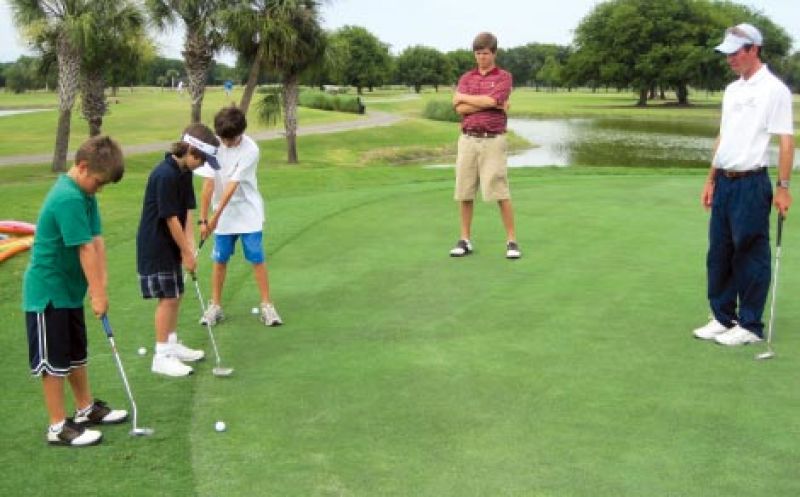
Think about it,” Ben Grandy muses from his Mount Pleasant office. “Once you hit a golf ball, you have a long, quiet walk before your next swing. What better opportunity to really talk with a young person?” As executive director of The First Tee of Greater Charleston, Grandy spends a lot of time thinking about golf, kids, and how the game can provide opportunities to change lives. A national organization founded by the World Golf Foundation, The First Tee is a hands-on youth education program intended to grow the sport of golf while simultaneously building positive character traits in those who play.
The nonprofit is guided by a two-part mission focused on golf instruction and personal development for young people between the ages of eight and 18. At first glance, it may seem a little strange to engage at-risk youth through one of the most notoriously frustrating sports ever invented, but to Grandy and a growing community of local supporters, it’s a match made in heaven. “Golf is a game of etiquette that is full of teachable moments,” he contends. “It requires patience, skill, perseverance, and a hundred more qualities that serve young people in other facets of their lives.”
Founded in 2008, the program reaches area youth through three primary avenues: direct sign-up from parents or guardians; at participating elementary schools with The First Tee-trained instructors; or via outreach to at-risk communities through the YMCA, City of Charleston Recreation Department, and Boys & Girls Clubs. The result is a diverse mix of would-be golfers, many of whom have never seen, let alone touched, a set of clubs before.
Gandy explains that The First Tee is reaching kids even in downtown neighborhoods where there isn’t enough grass for a decent putting green. “We’ve brought kids who had never been over the Ravenel Bridge to Patriots Point to play,” he says.
For equipment, The First Tee relies on private donations and the generosity of its participating golf courses. Younger students typically start with specially designed adaptive clubs that are safe for indoor use and encourage success on the course. They are instructed by local golf pros, PGA members who participate in special training and offer their time and expertise to the program.
Asked what he learned on the golf course besides how to swing a club, eight-year-old Kermit Lafayette explains, “You have to keep your cool sometimes”—a valuable lesson for life and one of its most challenging diversions.